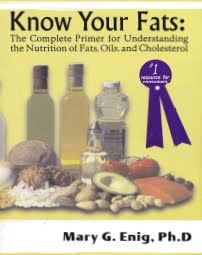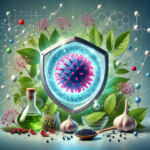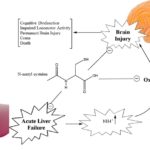Nutrition and Learning: Biology, Evolution, and the Brain
Since this post, my nutritional perspectives have evolved (get it?). All of these principals apply, but I have modified and gotten more specific and included other ingredients and practices. Learn more at www.legacy.feedabrain.com/book
Every living organism on this planet – be it bacteria, amoebae, fungi, plants, insects or animals – has some sort of a digestive system and some sort of a nervous system. Chambers 21st Century Dictionary states that “Organisms undergo metabolism, maintain homeostasis, possess a capacity to grow, respond to stimuli, reproduce and, through natural selection, adapt to their environment in successive generations.” (1)
If evolution, or natural selection, is the basis of life and biology, and both metabolism (digestion) and a response to stimuli (nervous system) are included in the definition of a living organism, then there must be an ancient, deep, and highly evolved connection between the digestive and the nervous systems within the human body.
When one is hungry, his or her brain translates this into a need to find food. When something does not sit well in the digestive tract, the brain makes the experience quite unbearable. This connection is even so deep that we experience “gut feelings” and “butterflies in the stomach” from emotional stimuli that is unrelated to food. (2) These systems have been adapting themselves since the beginning of life, and I think that they both deserve a great deal of recognition for being such functional, evolved, and efficient systems.
I asked in an earlier post: Food for Thought “what is smart eating?” But did not answer my perspective on this, so I will here: If evolution is the basis of biology and how our bodies have evolved, would not that principle apply to our digestive system and other internal organs as well? I don’t see why not. This means that our digestive systems have also evolved to tolerate the foods that we have adapted to.
I began reading many books and following a diet that eliminated foods that some humans have shown to have difficulty digesting. It made sense to me that a diet based on biology and the evolution of our bodies would be a good starting point. I began finding online information from MDs, ODs (doctors of osteopathic medicine), NDs (doctors of naturopathic medicine), DCs (doctors of chiropractic medicine), and writers without doctorate credentials, but who articulately presented information that proved to be extremely useful. A strict medical elimination diet does not allow grains, legumes (beans), dairy, soy, refined sugar, or foods that were not eaten prior to the agricultural revolution.
Because the agricultural revolution took place 14-15 thousand years ago, and it is thought that the first life on earth began about 3.7 billion years ago, putting those 14-15 thousand years into perspective add up to an itty bitty decimal of a fraction of the evolution of what we have ultimately evolved from. When we look at just human evolution, homo-sapiens are thought to have existed 200,000 years ago, and therefore, the vast majority of human evolution (about 93%), took place prior to the agricultural revolution. (McHenry, H.M (2009). “Human Evolution”. In Michael Ruse & Joseph Travis. Evolution: The First Four Billion Years. Cambridge, Massachusetts: The Belknap Press of Harvard University Press. p. 265. ISBN 978-0-674-03175-3.)
I get frustrated with how many diets there are out there from high carb; to no carb; from grains are terrible; or fat is evil; to “it doesn’t matter as long as you burn more calories than you ingest, you won’t gain weight.” Calories are a measure of potential energy, just like joules. In fact, 1 dietary calorie = 4,184 joules. So it is indeed an oversimplification to assume that the KIND of fuel does not matter. If you were to drink gasoline, which has about 31,000 calories per gallon, it would certainly affect more than your weight. This common and over simplistic perception, unfortunately, creates even more confusion about the metabolism of the human body.
Another common perception that I hear surrounding nutrition is that “everyone is different.” While I completely agree that there are aspects that are different from person to person, these differences are within normal characteristics and structures that perform the same function. A simple example of what I mean is that we all have fingertips, but every fingerprint is different. Any organism almost always shares all of the same structural characteristics as another of the same species. Physical traits straying from these common characteristics are called “deformities” and are, by definition, the exception to the basic structure and function of the body.
Yet another perception that I often hear (and once shared) is that “we just don’t know how the human body works.” While I agree that there is a lot that is still unknown, and I used to hold this common perception to a greater degree, there is so much that we DO know. I now find this viewpoint to be very hard to believe when science has brought the human race to accomplish so many astounding advancements in every science. We have developed the internet, perfected human flight, and put a man on the moon. We have identified all of the elements in the universe (that we know of), and developed the electron microscope to identify and inspect subatomic particles of single atoms. We have split atoms to make nuclear weapons, and we have even (reportedly) accelerated subatomic particles to speeds faster than the speed of light. (8) These are only a few of the many incredible and recent achievements of mankind.
We can accomplish these outstanding feats, but can we not figure out what the hell is optimal to eat? I find the idea that we are unable to inspect our own metabolism, in order to find a better diet for human health, hard to believe. It would make more sense that much of what we do know is silenced because of the financial repercussions that certain studies may have on big companies within the food and drug industries. The USDA food pyramid and dietary recommendations, for example, are not recommended for health purposes. The US Department of Agriculture (USDA) is an organization that has interests to financially support US Agriculture. Therefore, recommendations that are made by the USDA are for the benefit of US Agriculture’s financial interests… not human health.
The facts are this: the USA consists of at least 30% of THE WORLD’S obese population! This figure has skyrocketed to its current percentage since we have introduced highly processed foods, trans fats, GMOs and high fructose corn syrup into our diet; all of which are foods that the human race had never previously consumed before they were introduced in the early/mid 1900s. (3), (4)
We did not do over 50 year tests on highly processed foods, trans fats, artificial sweeteners, GMOs, and high fructose corn syrup before pushing them onto the American people and other countries; WE are the guinea pigs! I think that new foods could possibly be beneficial, but I, for one, will be cautious about being a guinea pig to study the long term effects. This epidemiological experiment that we have all been a part of has shown a pretty strong correlation that the combination of these foods lead to heart disease, obesity, and other chronic diseases compared to when we ate butter rather than margarine, were not afraid of saturated fats, used lard in just about everything, and made our own damn dinners! 🙂 (5)
50-60% of the dry matter of the brain is lipid, and DHA and AA (the wrongly demonized arachidonic acid) are the most abundant fatty acids of the brain (6). Thus, it stands to reason that the brain needs them to repair itself when injured, and AA and DHA are both found in many saturated fats as well as fish oils. Additionally, our ancestors have been eating saturated animal fats for hundreds of thousands of years, so it does not make sense how these foods could suddenly be causing disease when we have adapted to them for so long. I could go on and on, but it gets exhausting and I do not want to argue with anyone. If you are interested, I would be happy to point you towards excellent resources and people that want to spread this logical message. This is one incredible and scientifically sound book by Mary Enig PhD. Mary Enig is a former editor of the Journal of the American College of Nutrition and is known for her research on the role that fats play in diet and health.
 A strict Paleo diet is a great starting point to eliminate most possible inflammatories, because, throughout evolution, our digestion has adapted to such foods over hundreds of thousands of years. That being said, I do not follow a strict Paleo diet anymore. I eat grains (not gluten), dairy (full fat), and some sugar. I limit all of these things, but I do enjoy them, and I feel like food is meant to be enjoyed. In fact, studies show that “stress can affect every part of the digestive system”, and a relaxed and enjoyable atmosphere promotes healthy digestion. (7) I may even eat GMOs and high fructose corn syrup at times. If I find myself at a restaurant that I would not choose, but social circumstances have brought me to, I won’t be the stickler asking the servers if they use these ingredients and stressing myself out about my options; but I do not have them in my home and I seek other options when possible.
A strict Paleo diet is a great starting point to eliminate most possible inflammatories, because, throughout evolution, our digestion has adapted to such foods over hundreds of thousands of years. That being said, I do not follow a strict Paleo diet anymore. I eat grains (not gluten), dairy (full fat), and some sugar. I limit all of these things, but I do enjoy them, and I feel like food is meant to be enjoyed. In fact, studies show that “stress can affect every part of the digestive system”, and a relaxed and enjoyable atmosphere promotes healthy digestion. (7) I may even eat GMOs and high fructose corn syrup at times. If I find myself at a restaurant that I would not choose, but social circumstances have brought me to, I won’t be the stickler asking the servers if they use these ingredients and stressing myself out about my options; but I do not have them in my home and I seek other options when possible.
Human evolution as it relates to digestion follows the same form of evolution as other species. There are many aspects of human evolution, however, that are quite unique. Our evolution has reached new frontiers because we, unlike any other species, have begun a form of cultural and social evolution. Teaching and learning is the basis of this intellectual evolution. Through the inventions of language, writing, and communication, our ability to intellectually evolve has grown more than exponentially. The power of books, the power of written language and the dissemination of ideas, and how these are uniquely human and profound methods that have accelerated this evolution is quite impressive. In a more in depth manner and unlike any other species, we have the ability to spread knowledge and ideas to one another. We are able to show our offspring how to play a sport or an instrument, how to drive a car, or even how to read a book. And from books, one can learn more. We are far more than “merely apes.”
Today, GPS allows humans to locate where on earth they are standing or where someone or something else is. Artificial Intelligence (AI) is getting better to be able to do everything from driving a car to translating text from one language to another; breaking down language barriers to our abilities to communicate with one another. All of these and more allow the rate at which we culturally evolve to further grow.
What has accelerated our intellectual evolution to an entirely new level is the Internet. With the advent of the Internet, an idea or lesson can be transmitted fom one side of the globe to the other in less than a second. Thus, communication is even more widespread, and therefore, so is the rate of our cultural evolution.
Online classrooms take this to an even more profound level by allowing anyone with an Internet connection to learn from a university like Duke, Princeton, Harvard, or currently 30 other top universities for free. I have been taking courses using this incredible infrastructure for about six months now, and I hereby declare coursera.org the best new thing in the world right now!
Because our intellectual evolution is based around teaching and learning, understanding the ways in which one is able to learn opens the door to allow them to learn more. Since my brain injury (and to a lesser degree before), I have had trouble staying focused on written text. I suppose my experience is that I will begin to read something, and after only a few minutes, my entire being feels as if it is pulling me from the page. I begin to think of what I need to do, what tomorrow has in store etc… As if I have a need to interact with my environment rather than to stare at words on a page.
This is a difficult position to be in, especially when I am very interested in the book or article that I am attempting to read. John Medina compiles a lot of brain studies in his very smart book, “Brain Rules”. He says “Hear a piece of information, and three days later you’ll remember 10% of it. Add a picture and you’ll remember 65%.” No wonder most people watch TV far more than they read. This makes a lot of sense, but also makes me a little sad because I enjoy writing, and so much information is in written form.
It may be because of my brain injury, but I have personally found that I learn better when I listen rather than read. This is why I intend to make an audiobook version of my story. I have found methods that help me to understand more effectively, but I am completely aware that other people learn better using entirely different methods. This subject reminds me of an earlier post: Learning How to Learn. Surrounding my own difficulties reading, it could possibly be a result of my brain injury that pulls me from the page every time that I attempt to read… Perhaps some people simply learn better when they see or hear something rather than read something… Or perhaps it is the animal instinct (or Paleolithic man) within us all.
I think about my body, my organs, my digestion, and my brain from an evolutionary perspective. It is what makes sense to me. And when something makes sense to me, I am much more inclined to take into account the aspects of it and make informed choices from it. Understanding where humans came from allows us to better understand what we are and where to go from here.
“To get where we want to go, we have to understand where we are and how we got here.”
-Will and Susan of OraWellness.com
Works Cited:
- http://www.chambers.co.uk/search.php?query=Organism&title=21st
- http://www.ncbi.nlm.nih.gov/pubmed/21750565
- http://www.who.int/mediacentre/factsheets/fs311/en/index.html
- http://web.archive.org/web/20051018105337/http://www.thesoydailyclub.com/SFC/MSPproducts501.asp
- http://www.cdc.gov/obesity/data/adult.html
- http://www.ncbi.nlm.nih.gov/pmc/articles/PMC3480864/
- http://www.everydayhealth.com/health-report/better-digestion/how-stress-affects-digestion.aspx
- http://www.geekosystem.com/cern-faster-than-light/




Comments
This is an excellent treatise, Cavin. You know, I fee the same way about reading and I haven’t had a brain injury. Also, I read quite slowly too. Nevertheless, you write beautifully. You have excellent comprehensive and an impressive ability to relate your understandings in way that others can easily understand and appreciate.
Great, thanks.
Pops
Thanks, Pops!
It’s good to know that I’m not alone. 🙂 Thanks for the very nice words too… I love you!